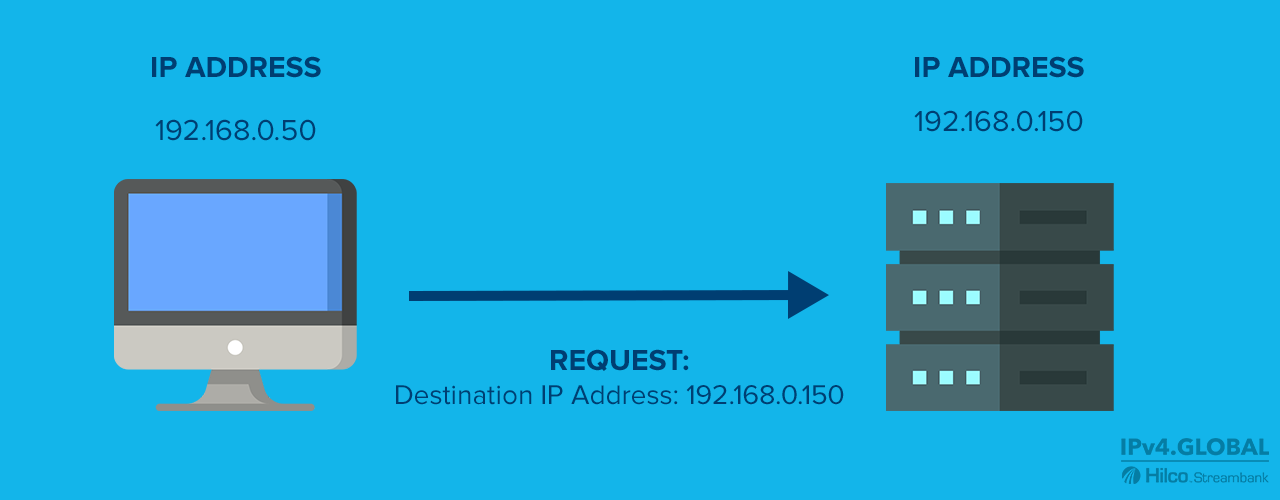What is IPv4 and Why Does it Matter?
August 27, 2020
IPv4, or Internet Protocol version 4, is a set of rules that allows devices, like computers and phones, to exchange data on the Internet. Each device and domain connected to the Internet is assigned a unique number, called an IP address. These addresses ensure data is routed to the correct device.

IPv4 addresses are 32-bit numbers written with four decimals. Between each decimal is a number between 0 and 255. Example: 192.0.2.235 In this article, we cover Internet Protocol and the future of IPv4.
Internet Protocol Overview
Internet Protocol (IP) are rules, first established in the late 70s by DARPA, for routing or sending packets of data across networks between devices. When data or information travels over the Internet or web, it travels in small packets. IP addresses ensure that devices like computers, servers, domains, etc. route those data packets to the correct place. Domain Name Systems or DNS are like the Internet’s phone book. They translate domain names (like Netflix.com) into IP addresses. So, when you type Netflix.com into your laptop browser, DNS allows your computer to communicate with Netflix’s IP address, and Netflix sends content (via packets) back to your laptop’s IP address.
Why it Matters
With 32 bits, IPv4 addresses limit the number of unique hosts to 232—meaning there are roughly 4.3 billion IPv4 addresses available. Turns out, that by 2011, 4.3 billion potential IPv4 addresses wasn’t enough. That year, the Internet Assigned Numbers Authority (IANA) ran out of addresses to allocate to regional registries. And, in 2017, Pew Research found that the median American household had five devices. Just two years later, Deloitte found that the median American household had 11 devices.
Because of the exponential increase in devices connected to the Internet and the lack of new blocks on IPv4, the Internet Engineering Tracking Taskforce (IETF) created a new Internet protocol, IPv6. Below are the basic differences between the two versions.

There are many pros and cons of IPv4 vs. IPv6 (find an in-depth list here). To summarize those pros, IPv4 is what most of the Internet runs on. Because of that, devices running on IPv4 have a more seamless connection to other devices. IPv6 allows for more addresses and will be slightly faster once most of the Internet has converted to IPv6.
Moving Forward
Most of the Internet’s traffic today is still routed to IPv4 addresses. Because IPv6 is relatively new, not all devices are configured to communicate with IPv6. For this reason, IPv4 remains in demand for many businesses today. With a definite need to own IPv4 space, and often value in selling the IPv4 addresses you no longer use, IPv4.Global is here to help broker deals and provide the space you need. Contact us today for all your IPv4 needs.